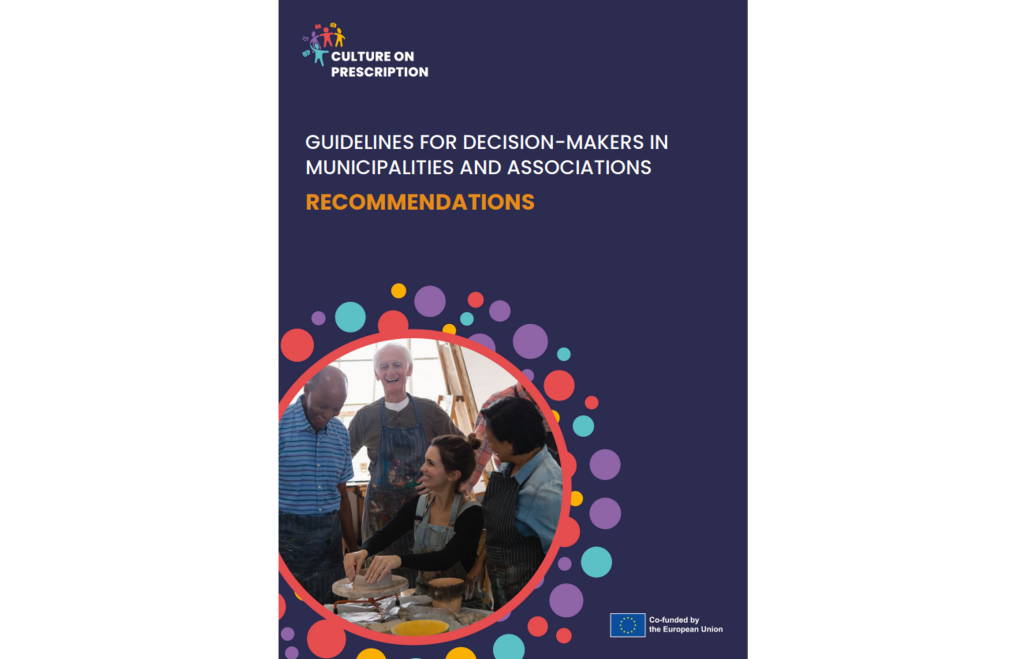The challenges of dealing with social isolation and loneliness in our society have become much more visible in recent years, not just for older people, but also for many other population groups. Loneliness can have serious consequences for physical and mental health, resulting in more GP visits and a greater reliance on medical prescriptions. The “Culture on Prescription in Europe” project has shown that cultural activities such as art, music and theatre can increase emotional well-being, strengthen the sense of community, and thus counteract feelings of loneliness and isolation.
Successful policy implementation relies on cooperation and collaboration between cultural, health and welfare sectors regarding the target group. By identifying potential project outcomes, such as reduced isolation and health costs for communities and individuals, policymakers and officeholders should be involved as much as possible in the programme preparation process. This can also help secure sustainable funding. Cultural prescribing programmes should be free or at least affordable for participants. Implementation requires financial support from the public sector, foundations, or other external donors. Evidence shows that Social Prescribing programmes reduce health costs, and the COPE Project, which engages people in cultural activities as a means of social prescribing, has clearly demonstrated this.
Involving municipal partners makes it possible to develop guidelines for promoting “Culture on Prescription” models at the local level and, above all, to implement them successfully and more sustainably. The Culture on Prescription project’s experiences detail resources and information for successful implementation. The experiences and differences in various cultural approaches in each country are outlined here: https://culture-on-prescription.eu/resources/

